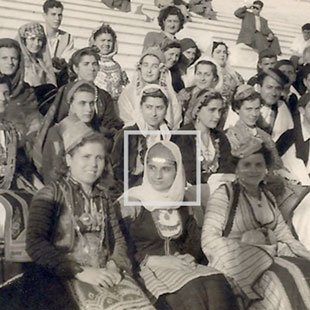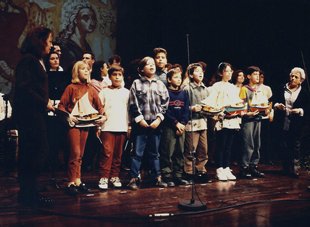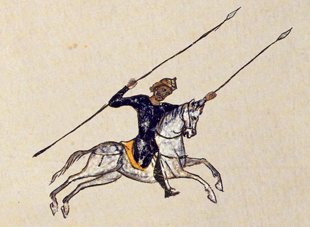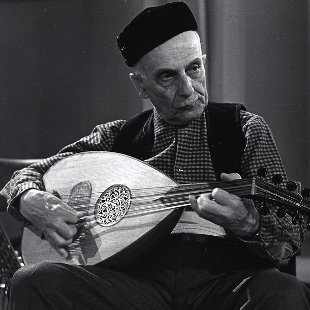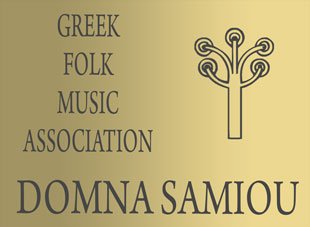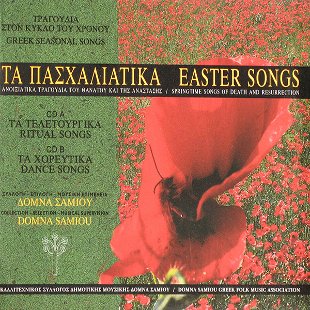You are at: Home page Her Work List of Songs Easter Couplets
Easter Dance
Πασχαλιάτικα δίστιχα
Listen
Lyrics
Easter has come round again, throw out the koukouràs1
and put a red egg laid this year upon the ikon stand2.
Glad returns of Easter Day,
the day all eat red eggs,
glad returns of Easter Day,
and all say ‘Christ is Risen’.
Easter has come round again, it is the festive season,
the girls will get themselves dressed up in their newest dresses.
This very day has Christ arisen, and all rejoice and revel,
in every house they feast and drink, to all the doors stand open.
Christ has risen from the dead and over death has triumphed3.
I’ll sell whatever I possess to spend it all on her.
Translated by John Leatham
1Lent, a strict forty-day period preceding Holy Week, was a period of trial that seemed neverending. Lenten fasters contrived all manner of ways to give themselves the sense of time passing and the strength to endure such time as still remained. In Chios, for instance, they personified Lent as a woman at prayer. The figure, made of paper, had no mouth but seven legs, that is, as many legs as there were weeks before Easter. At the end of each week they cut off one leg, to which incidentally they attributed magical powers. In Pontos the koukourás was a kind of calendar, similarly frightening to children. It was made out of a large onion with long trailing roots and smoked in the fire till it was blackened. Some wild features were added and seven hens’ wings stuck in it. It was then hung from the ceiling, one wing being removed at the end of each week. In Holy Week it was made to disappear and children were told a variety of storiesabout its arrival and departure.
2In the evening of Holy Saturday each family took with it to church as many red eggs as there were members of the family for the priest to bless and one in addition which they placed on the icon stand as a ‘blessed egg’. They believed this last would never rot and kept it till the following Easter when it was replaced with a fresh egg.
3This line is taken from the Easter hymn ‘Christ is Risen’.
Original Lyrics
Πασχαλιάτικα δίστιχα
Έρθεν οφέτος η Λαμπρή, τον κουκαράν1 εβγάλτεν
φετιζνόν κόκκινον ωβόν,2 ξαν’ σην εικόναν βάλτεν
Την Λαμπρήν χρόνια πολλά
τρώνε κόκκινα ωβά
την Λαμπρήν Χριστός Ανέστη
όλ’ λένε Αληθώς Ανέστη.
Έρθεν οφέτος η Λαμπρή, τα καλά τα ημέρας
θα φορούν και σκεπάουνταν3 τα κορτσόπα τη χώρας.
Χριστός Ανέστη σήμερον, όλ’ λάσκουν4 χαρεμένα
σ’ όλια τα σπίτια τρών’ και πίν’, τα πόρτας ανοιγμένα.
Χριστός Ανέστη εκ νεκρών και θάνατον πατήσας
το βίο μ’ όλιον θα πουλώ και δίγω από πίσα τ’ς.5
1Η Σαρακοστή, η αυστηρή νηστεία των σαράντα ημερών πριν από τη Μεγάλη Βδομάδα, ήταν μια βασανιστική και ψυχολογικά ατέλειωτη περίοδος. Οι νηστευτές επινοούσαν διάφορους τρόπους για να έχουν μια αντίληψη του χρόνου που πέρασε και ν’ αντέξουν εκείνον που απομένει. Στη Χίο π.χ. παρίσταναν τη Σαρακοστή σαν χάρτινη γυναίκα, σε στάση προσευχής, δίχως στόμα και με εφτά πόδια - όσες και οι βδομάδες ως το Πάσχα. Κάθε βδομάδα έκοβαν κι από ένα πόδι, στο οποίο μάλιστα απέδιδαν και μαγικές ιδιότητες. Ο κουκουράς ή κουκαράς ήταν ένα αντίστοιχο, φοβεριστικό για τα παιδιά, ημερολόγιο που έφτιαχναν στον Πόντο. Ένα μεγάλο κρεμμύδι με μακριές ρίζες, σαν μουστάκια. Το καψάλιζαν για να μαυρίσει, σχεδίαζαν άγρια χαρακτηριστικά και έμπηγαν γύρω εφτά φτερά κότας. Το κρεμούσαν απ’ το ταβάνι και κάθε βδομάδα αφαιρούσαν από ένα φτερό. Τη Μεγάλη Βδομάδα τον εξαφάνιζαν. Στα παιδιά διηγόντουσαν διάφορες ιστορίες για την άφιξη και την αναχώρησή του.
2Το βράδυ του Μεγάλου Σαββάτου όλες οι οικογένειες έπαιρναν στην εκκλησία τόσα κόκκινα αβγά όσα και τα μέλη της οικογένειας, για να τα ευλογήσει ο παπάς, και ακόμη ένα που το έβαζαν στο εικονοστάσι, το «ευλογημένο αβγό». Πίστευαν πως αυτό δεν χαλάει ποτέ και το κρατούσαν ως το επόμενο Πάσχα, οπότε και το αντικαθιστούσαν.
3θα φορούν και σκεπάουνταν: θα βάλουν καινούρια ρούχα και κεφαλόδεσμο
4λάσκουν: σεργιανάνε
5δίγω από πίσα τ’ς: θα της τα χαλαλίσω
Information
- Region: Pontus
- Area: Trabzon
- Type: Couplets
- Categories: Easter Song, Ritual Song
- Rhythm: 5 beats
- Dance style: Tik
- Duration: 03:27
Collaborators
- Singer: Yiorgos Amarantidis
- Pontic lyra: Yiorgos Amarantidis
- Daouli (davul): Yiorgos Gevgelis
Albums
Recording information
Studio recording, 1997.
Member Comments
Post a comment
See also


Song
All Attend at Church
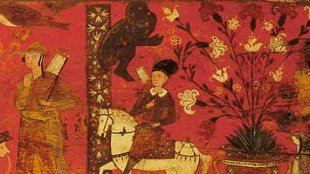
Song
Arta’s Bridge

Song
Down in the Open Countryside

Song
For a Whole Seven Weeks...

Song
It Is May Month

Song
It’s Eastertime

Song
Maria’ S Gone to Pick Some Lilac
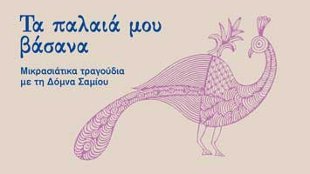

Song
My Son, Why Dont You Go and Wash?

Song
One Easter Day, One Sunday
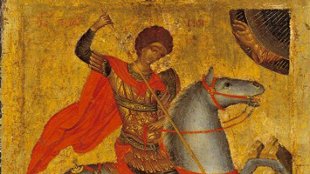
Song
Song of Saint George

Song
Today, My Dark-Eyed Beauty


